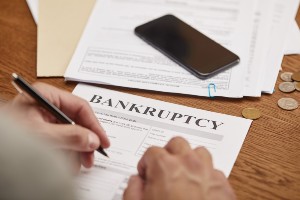Bankruptcy can free you from financial burdens that have plagued you for years. It can make your life easier and provide a fresh start, financially speaking. It can also help you get back on track and undo any damage that was caused by your own mistakes or by uncontrollable circumstances.
Despite all the good that can come from filing for bankruptcy, it’s not a magic pill. It’s a tool that can help you make a bad situation much better, but it isn’t going to magically eliminate all of your problems. It might not even eliminate all of your debt.
But isn’t the purpose of filing for bankruptcy to have your debts discharged so creditors can no longer force you to pay them?
Yes. But it’s more complicated than that.
Many types of debt are dischargeable, but there are exceptions and these exceptions apply to more cases than you might think.
For instance, child support and spousal support that you have failed to pay cannot be discharged under any type of bankruptcy. No matter what type of bankruptcy you choose, you will still be obligated to pay any money you owe, even if you’ve fallen far behind. What bankruptcy can do in these cases is alleviate other financial burdens and make it easier to pay what you owe in support.
Tax debt is also not always dischargeable in bankruptcy. Some older tax debts can be discharged, but the law is set up so a person who owes money to the IRS can’t use bankruptcy to get out of paying it. Recent income tax debt will not be discharged in bankruptcy.
There are also rules about student loan debt. Government loans are unlikely to be forgiven in bankruptcy, but you can enjoy some benefits related to private student loans.
Differences between Chapter 7 and Chapter 13 Bankruptcy Discharges
The chapter bankruptcy you choose also affects what can and cannot be discharged. For instance, leftover debt after filing for Chapter 7 might include:
- Debt incurred by fraud
- Priority or unfiled tax debt
- Theft-related debts
- Student loans
- Criminal fines and restitution
- Family support debts (child and spousal support)
If you had any of these types of debts going into a Chapter 7 bankruptcy, they’ll still be there once you’ve completed the process.
Chapter 13 offers a bit more flexibility, and might allow you to discharge non-support obligations to a spouse, government fines, and fines associated with some intentional torts. Many tax penalties are also dischargeable, even if you still owe the tax itself.
It’s also important to realize that liens survive bankruptcy. Your personal liability for the debt, but if the debt was secured by a lien on any of your assets, that lien will survive. The exception is if the court strips the lien – a process you can learn about here.
If you would like to know more about what debts you might have left over after your bankruptcy is complete, or you would like to know more about how filing for bankruptcy might help you deal with a financial crisis, contact the Law Office of Robert M. Geller at 813.254.5696.



























![Signs That You May Need to File Bankruptcy [Infographic]](https://djml3wkzi26ea.cloudfront.net/wp-content/uploads/2021/01/signs-chap7-v-chap13.jpg)
![How To File for Bankruptcy [Infographic]](https://djml3wkzi26ea.cloudfront.net/wp-content/uploads/2020/07/bankruptcy-steps-infographic-web.jpg)










